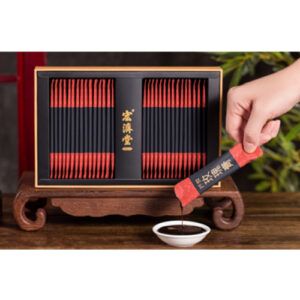Ayurvedic herbal pastes incorporate a wide range of herbs, each with its own unique properties and potential therapeutic benefits.
Here are some common herbs used in Ayurvedic herbal pastes:
Turmeric (Curcuma longa): Turmeric is a powerful herb known for its anti-inflammatory and antioxidant properties. It is often used in Ayurvedic pastes for its skin-soothing effects and to promote overall wellness.
Neem (Azadirachta indica): Neem is highly regarded in Ayurveda for its antibacterial, antifungal, and skin-purifying properties. Neem paste is commonly used for skin conditions and to support oral health.
Sandalwood (Santalum album): Sandalwood has a cooling and calming effect on the skin and is often used in Ayurvedic pastes for its astringent and soothing properties. It is believed to promote healthy, glowing skin.
Aloe Vera (Aloe barbadensis): Aloe vera is known for its soothing, hydrating, and healing properties. Aloe vera paste is used to alleviate skin irritations, promote wound healing, and moisturize the skin.
Triphala: Triphala is a blend of three fruits—amalaki (Indian gooseberry), bibhitaki, and haritaki. It is commonly used in Ayurveda to support digestion, detoxification, and overall well-being. Triphala paste may be used for oral health or digestive concerns.
Brahmi (Bacopa monnieri): Brahmi is an herb known for its cognitive-enhancing properties. It is believed to support memory, concentration, and mental clarity. Brahmi paste may be used as a scalp treatment or for its overall rejuvenating effects.
Gotu Kola (Centella asiatica): Gotu kola is a herb traditionally used in Ayurveda for its rejuvenating and wound-healing properties. It is often included in herbal pastes for its skin-nourishing effects.
These are just a few examples of herbs commonly used in Ayurvedic herbal pastes. Ayurveda encompasses a vast range of herbs, and the selection of herbs may vary based on the specific purpose and desired benefits of the paste. herbal paste manufacturer in China It is always advisable to consult with an Ayurvedic practitioner or herbalist for personalized guidance and appropriate formulations.
Are there any precautions or side effects to consider when using Ayurvedic herbal pastes?
While Ayurvedic herbal pastes are generally considered safe when used appropriately, it is important to be aware of certain precautions and potential side effects. Here are some points to consider:
Allergic Reactions: Individuals may be allergic or sensitive to certain herbs or ingredients used in Ayurvedic pastes. It’s advisable to perform a patch test by applying a small amount of the paste to a small area of skin and observing for any adverse reactions before applying it to a larger area.
Quality and Source: Ensure that the herbs and ingredients used in the herbal paste are of high quality and obtained from reputable sources. This helps minimize the risk of contamination or adulteration.
Individual Sensitivities and Conditions: People with specific health conditions, such as allergies, skin disorders, or chronic illnesses, should exercise caution and consult with a healthcare professional or Ayurvedic practitioner before using herbal pastes.
Interaction with Medications: Some herbs may interact with certain medications. If you are taking any prescribed medications, it’s important to consult with your healthcare provider or an Ayurvedic practitioner to ensure there are no potential herb-drug interactions.
Photosensitivity: Certain herbs used in Ayurvedic pastes, such as citrus-based ingredients or essential oils, may increase the skin’s sensitivity to sunlight. Be cautious about sun exposure after applying these pastes and consider using appropriate sun protection.
Quality Control: Ayurvedic herbal products can vary in quality and safety. Look for reputable brands that prioritize quality control, adhere to good manufacturing practices, and follow safety guidelines.
Personalized Approach: Ayurvedic treatments are often individualized based on a person’s unique constitution (dosha) and specific needs. Consulting with an Ayurvedic practitioner or herbalist can help ensure that the herbal paste is suitable for your specific health and wellness goals.
It’s important to note that this information is not exhaustive, and individual responses to herbal pastes can vary. If you experience any adverse reactions or concerns while using an Ayurvedic herbal paste, discontinue use and consult with a healthcare professional.
